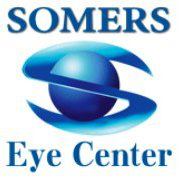 Does it seem like you’re looking through a frosty window? Are you having trouble seeing at night? As you age, the lenses in your eyes become less flexible, less transparent and thicker. Aging-related changes to the lens cause tissues to break down and to clump together, clouding small areas of the lens.
Does it seem like you’re looking through a frosty window? Are you having trouble seeing at night? As you age, the lenses in your eyes become less flexible, less transparent and thicker. Aging-related changes to the lens cause tissues to break down and to clump together, clouding small areas of the lens.
Most cataracts develop slowly, eventually impairing vision and interfering with daily activities like driving, reading and watching tv.
Other signs of a cataract are:
- Seeing halos around lights
- Sensitivity to light or glare
- Fading or yellowing of colors
- Double vision in a single eye
To restore vision, the cataract is surgically removed and replaced with a clear artificial intraocular lens (IOL). Artificial lenses have been implanted in human eyes for over 50 years. Surgical techniques have drastically improved to a painless procedure, taking only minutes to perform with a relatively short recovery period.
Somers Eye Center now offers advanced technology lens implants to cataract patients. New options are also available for patients suffering with astigmatism that need an intraocular lens implant (IOL) after cataract removal. The PanOptix and Vivity lens offers clear distance and near vision simultaneously from both eyes.
Statistically, cataract removal and lens implantation has one of the highest success rates among all surgeries.
Schedule an appointment today and let Dr. Blacklock recommend the best procedure for you.
Cataract Surgery: What to Expect
Surgery to remove cataracts is one of the safest procedures in medicine today.
Cataract surgery is performed on an outpatient basis. Risks are much lower and recovery is much faster when surgery is done early; no need to wait until your vision is very poor.
Dr. Blacklock will perform the procedure at our local surgery center just a few blocks away from our office. You will be given a mild sedative to help you relax. The procedure takes about 20 minutes but plan to spend 2 to 3 hours at the center for pre-op and recovery. You will be released to go home and relax for the rest of the day.
Most patients are able to see well after surgery. No eye patch is needed and most patients return to their normal activities within a day or two. If you have cataracts in both eyes, the second procedure will usually be scheduled in 2-4 weeks.
If you have any questions about our services, please contact us today at (816) 842-2015.
